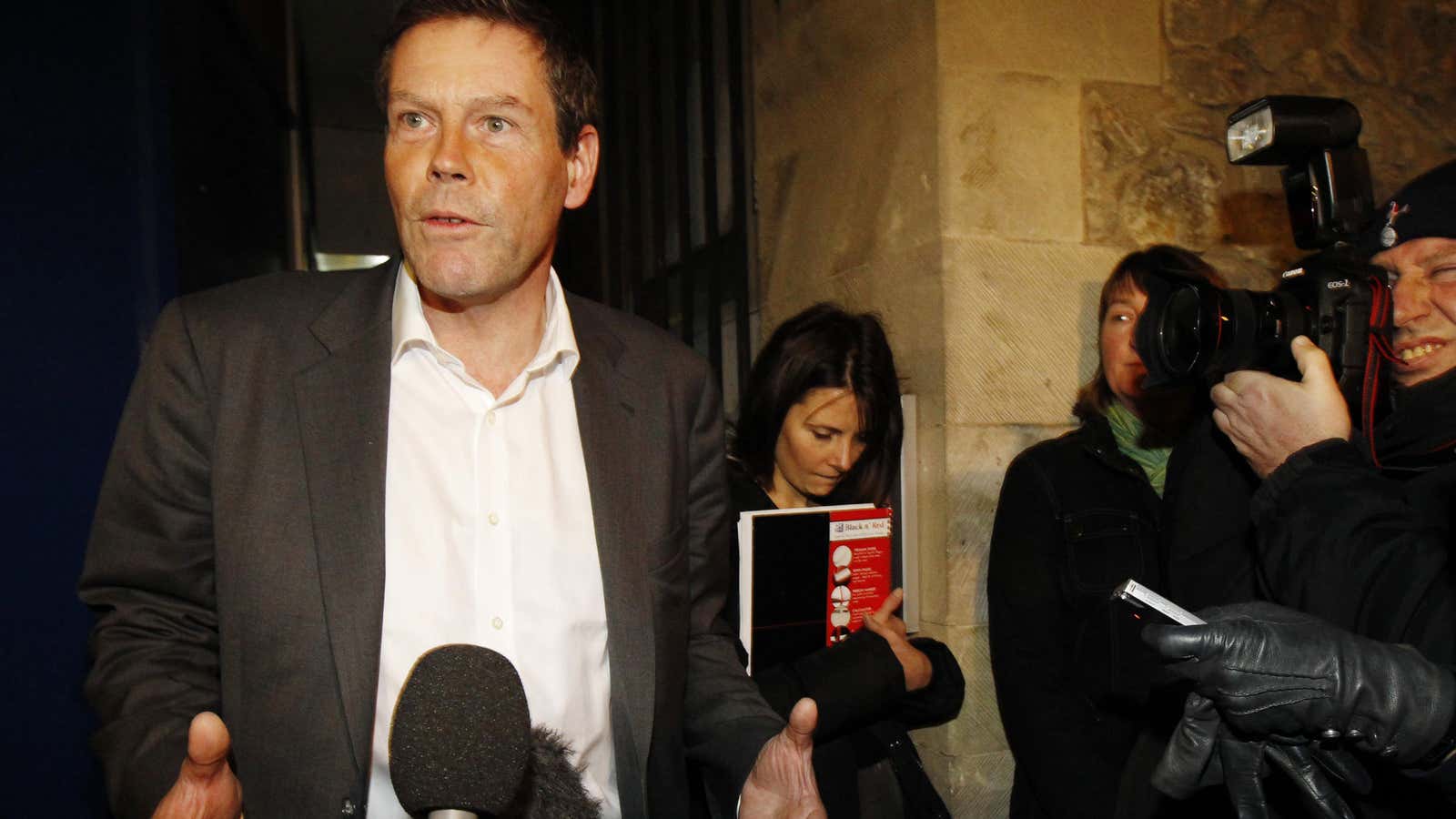Bankers don’t usually get much sympathy after the financial crisis and subsequent series of scandals. But bankers are people too. And the human toll on financiers called in to clean up the mess is particularly acute.
The latest example of banker burnout is Hector Sants, head of compliance at Barclays. Sants went on sick leave last month, citing exhaustion, and officially announced his resignation today. He joined the bank in January after running the British securities regulator during the financial crisis—itself a position with plenty of stress.
Comparisons are inevitably drawn with António Horta Osório, CEO of Lloyds Banking Group, who took a few months off for stress-related fatigue in late 2011, less than a year after taking up the position. The beleaguered bank is part-owned by the British government following a bailout; the new chief executive was charged with a deep restructuring of the group, including 15,000 job cuts.
Putting wayward operations back on track at any large company is never easy, but the scale and scope of the problems at the biggest financial firms are in a league of their own. Imposing controls on hard-charging traders and dealmakers wins compliance-minded managers few friends, even if new rules are necessary to prevent more rate rigging, market manipulating, derivative mis-selling and a host of other depressingly common misdeeds. Compliance units are often dismissed internally as the “business prevention unit,” which isn’t great for morale. And in addition to getting stick from colleagues, the stress of dealing with increasingly onerous and complex regulations—from Dodd-Frank to Basel III—is daunting, with any missteps severely punished by authorities.
The silver lining is that the scarcity of managers able—or willing—to take on the burden of bolstering compliance at big banks is pushing up pay for these positions. At Barclays, Sants was reportedly making £3 million ($4.8 million) per year. He decided that the costs to his health outweighed the pay. That might prompt some soul-searching among others working on post-crisis clean-up crews at rival banks.
